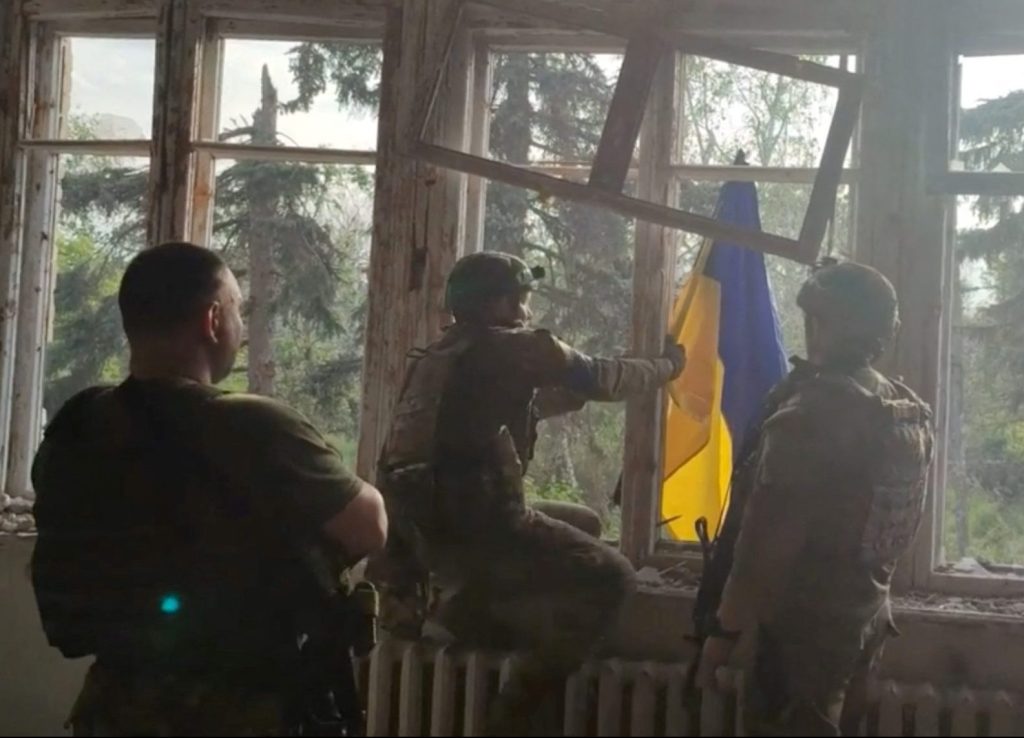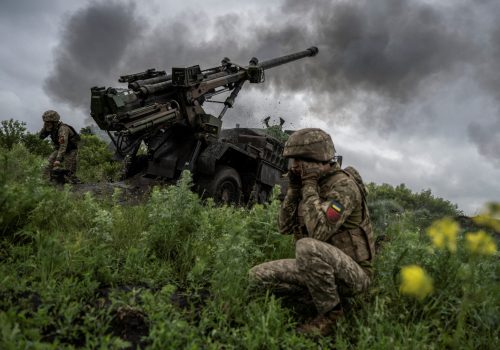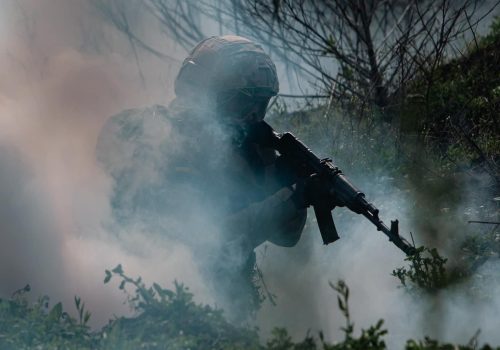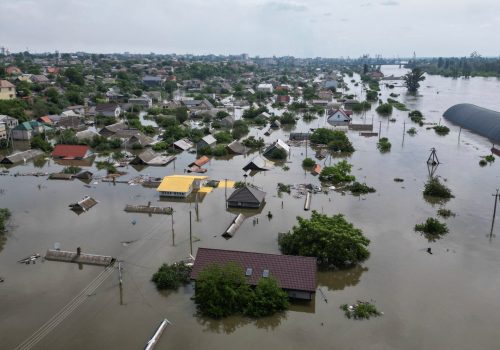As Ukraine’s long anticipated counteroffensive gets underway, international attention is firmly fixed on military developments. If the Ukrainian Armed Forces are able to achieve significant advances, the authorities in Kyiv will also be faced with the challenge of reintegrating communities that have lived for more than a year, and in some cases over nine years, under Russian occupation.
The obstacles to successful reintegration should not be underestimated. Since the Russian invasion of Ukraine first began in 2014, Moscow has prioritized control of the information space and has subjected the population in occupied regions of Ukraine to relentless propaganda. Nevertheless, there is good reason to believe that the communities living in occupied Ukraine can be successfully reintegrated following liberation if the right policies are adopted.
Much to the Kremlin’s disbelief, Ukrainian national identity has proven far stronger than anyone in Moscow anticipated in 2014. Similarly, it should now be abundantly clear that the percentage of Ukrainian citizens who speak Russian in their daily lives or embrace aspects of Russian popular culture is in no way indicative of political loyalty to the Kremlin.
Even in regions of Ukraine where the Russian language remained dominant in everyday life following the Soviet collapse, and where cultural connections to post-Soviet Russia appeared strongest, there has also been significant exposure to Ukrainian culture, language, and national identity since the 1990s. For many years, everything from TV advertising to movies have been broadcast in Ukrainian, while education has predominantly been in Ukrainian as the official state language. An entire generation of Russian-speaking Ukrainians grew up and reached adulthood with an awareness of their Ukrainian identity prior to the initial Russian invasion of 2014.
Policymakers in the Kremlin appear to have bet that historic ties to Russia would trump any emerging sense of Ukrainian identity. This confidence was no doubt reinforced by Russia’s prominence in Ukrainian popular culture, with Russian pop singers, film stars, comedians, and literary figures all enjoying widespread popularity. However, the rapid decline since 2014 of Russian cultural influence in parts of Ukraine not subject to direct Kremlin control has illustrated the fragility of Russia’s informal empire.
Stay updated
As the world watches the Russian invasion of Ukraine unfold, UkraineAlert delivers the best Atlantic Council expert insight and analysis on Ukraine twice a week directly to your inbox.
Since the full-scale invasion began in February 2022, Ukraine has consistently stated that it will settle for nothing less than the liberation of the entire country within the international borders recognized in 1991. This is a massive military undertaking that will involve defeating a Russian invasion force numbering in excess of 300,000 soldiers. Beyond that, Ukraine must also reintegrate perhaps five million people who have spent an extended period living under Russian occupation.
While millions of Ukrainians fled Russia’s initial invasion in 2014 and the subsequent full-scale invasion of 2022, many more remained behind. They have been fed a diet of Kremlin propaganda portraying Ukraine as both a Nazi state and a puppet of the West. Russia has focused particular attention on indoctrinating young Ukrainians to convince them that their future lies with Moscow.
Despite these challenges, there is reason to believe that Russia’s efforts will ultimately fail. Ukrainians as a whole have been subjected to many decades of russification but have demonstrated in recent years that they are not convinced by the Kremlin’s anti-Ukrainian messaging. Indeed, the past nine years of Russian aggression have sparked a sharp rise in Ukrainian patriotism across the country, particularly in regions previously regarded as being highly russified. The shared sense of Ukrainian identity forged since 1991 has proven far stronger than the Kremlin had anticipated, while Russian aggression has had a powerful unifying impact on Ukrainian society.
Eurasia Center events

Crucially, none of the Russian-occupied regions of Ukraine has been fully cut off from the rest of Ukraine since 2014. Until the launch of the full-scale invasion in February 2022, regular interaction across the front lines in Crimea and eastern Ukraine was the norm. Even the intensification of hostilities over the past 16 months has not led to a complete breakdown in communication.
Victims of Russian aggression will have a key role to play in the reintegration process. In every region liberated from Russian occupation, Ukrainian officials have uncovered evidence of widespread war crimes including summary executions, torture, sexual violence, abductions, and mass deportations. It is vital that survivors share their experiences with their wider communities to underline the horrors of the Russian occupation. Local residents will be seen as far more credible than government officials.
It will also be important to communicate in Russian as well as Ukrainian. While growing numbers of Ukrainians are embracing the Ukrainian language, many communities in southern and eastern Ukraine remain predominantly Russian-speaking and have been cut off from the Ukrainian language by Russia’s invasion. They will likely be far more receptive to Russian-language messaging, especially during the initial period following de-occupation, regardless of their personal attitudes toward issues of national identity.
It goes without saying that Ukraine’s top priority is to win the war. At the same time, military victories will prove hollow if the Kyiv authorities are unable to successfully reintegrate millions of Ukrainian citizens who have spent extended periods living under Russian occupation. In order to win hearts and minds, it is vital to underline to liberated communities that they are coming home to a nation that values and embraces them.
Lesia Dubenko is a Ukrainian analyst and journalist. Her articles have appeared in the Financial Times, Politico Europe, New Eastern Europe, and the Atlantic Council.
Further reading
The views expressed in UkraineAlert are solely those of the authors and do not necessarily reflect the views of the Atlantic Council, its staff, or its supporters.

The Eurasia Center’s mission is to enhance transatlantic cooperation in promoting stability, democratic values and prosperity in Eurasia, from Eastern Europe and Turkey in the West to the Caucasus, Russia and Central Asia in the East.
Follow us on social media
and support our work
Image: Ukrainian soldiers raise a Ukrainian flag during an operation that claimed to liberate the first village amid a counteroffensive, in a location given as Blahodatne, Donetsk Region, Ukraine, in this screengrab taken from a handout video released on June 11, 2023. (68th Separate Hunting Brigade 'Oleksy Dovbusha'/Handout via REUTERS)




